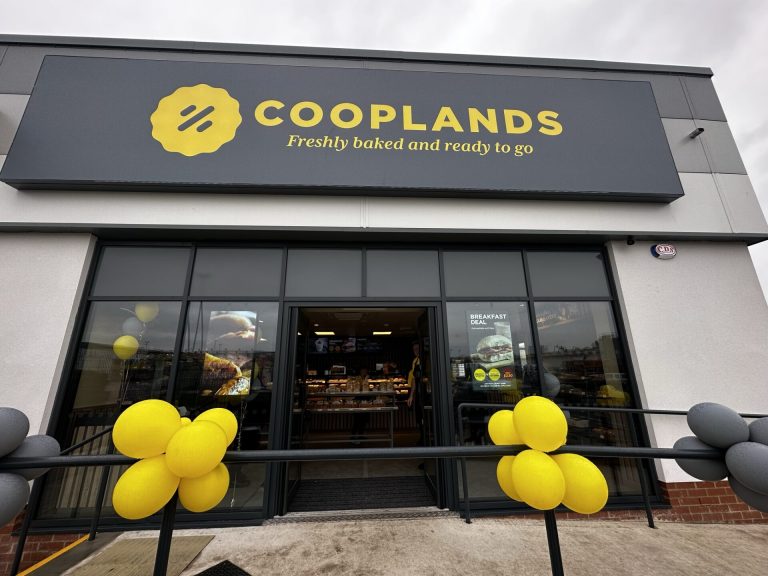Veterinary group completes £13m refinancing deal to support growth strategy
Roofing merger creates £20m nationwide group
Two established roofing contractors have merged their operations to create a business with a turnover exceeding £20 million and a workforce of 60 employees. Roofclad Systems has merged with Profile Industrial Roofing, forming a group with five offices across the UK.
Roofclad, with more than four decades in the sector, has bases in Newcastle, Leeds, Warrington, and Reading, serving clients in industries including manufacturing, logistics, retail, education, and defence. Profile Industrial Roofing, founded in 1996 and based in the Midlands, will adopt the Roofclad Systems name from October 2025.
The combined company has also secured a new head office at Britannia Enterprise Park in Lichfield, Staffordshire. The site was purchased earlier this year to double available workspace and will undergo a full fit-out, with operations scheduled to begin there in January 2026.
The new business will be co-led by David Clarke of Profile Industrial Roofing and Alex Tilley of Roofclad Systems. In addition to its core industrial and commercial roofing services, the group plans to expand its project management and technical capabilities and broaden its offerings to include energy-efficient roofing solutions and solar technology.
Yorkshire investors regain control of Cooplands
Coopland & Son (Scarborough) Ltd has returned to local ownership after being acquired from EG Group by a Yorkshire-based investor team. The deal brings the bakery business back to the region where it was first established in 1885.
The buy-in is led by David Salkeld, who resumes his position as Chairman. He is joined by Paul Coopland, representing the founding family, who takes up a Non-Executive Director role. John Ruddock, with more than two decades at the company, continues as Chief Executive. The leadership team is further strengthened by John Kitson as Chief Financial Officer and Steph McGinty as HR and Transformation Director.
Cooplands operates two bakeries supplying a network of 154 stores across Yorkshire and the north-east. The business employs more than 1,400 people and remains one of the largest regional bakery chains in the UK.
John Ruddock, CEO of Cooplands, said: “It is with genuine pride that we announce today’s purchase, which brings Cooplands back under the management of a locally based team with strong and established knowledge of our organisation, our colleagues, suppliers and customers. This gives us the opportunity to focus on strategic growth for the future, whilst preserving the traditional values and excellence for which the brand has been known and respected for over 140 years.”
The transaction is positioned to give Cooplands renewed strategic focus under regional leadership while maintaining its longstanding reputation for bakery production and retail. For the company’s workforce, suppliers, and retail partners, the move signals continuity alongside plans for future growth.
Caledonian expands hotel collection with Isle of Wight acquisition
Caledonian Leisure has strengthened its hotel portfolio with the purchase of a 104-bedroom property on the Isle of Wight. The Broadway Park Hotel in Sandown will be rebranded as The Caledonian Island Hotel and is scheduled to reopen in February 2026.
The addition marks the sixth site in the Caledonian Hotel Collection, joining existing properties in Torquay, Blackpool, Scarborough, Arrochar, and Callander. The deal, completed with the support of Caledonian’s investment partners, extends the group’s footprint into another established UK holiday destination.
The move reflects continued growth for the Leeds-based company, which operates through the Caledonian Travel and UKBreakaways brands. Once operational, the Isle of Wight hotel will welcome both coach package and self-drive visitors. Recruitment for local staff is expected to begin ahead of the reopening, supporting regional employment and reinforcing the company’s commitment to operating in key UK leisure markets.
Jobs set to go at Humber refinery after owner collapse
Around 125 roles are expected to be cut at the Lindsey Oil Refinery in North Lincolnshire after its parent company, Prax Group, entered administration. The move leaves approximately 255 employees in place, out of a total workforce of about 420 direct staff and 500 contractors.
Efforts to secure a buyer to keep the site fully operational are ongoing, with at least two bids already lodged. The official receiver has confirmed that health and safety at the site remains a priority as the search for a purchaser continues.
The Insolvency Service has launched an investigation into the conduct of the company and its directors following the collapse. Political pressure has also grown in recent months, with calls for scrutiny of Prax’s parent firm, State Oil, before the administration process began.
Unions have signalled that support could be available to assist the refinery in maintaining operations, although the long-term future of the facility remains uncertain.
Sheffield roofing company makes switch to employee ownership
Wakefield offsite manufacturer boosts team as it targets £60m turnover
Dacre Son & Hartley puts best foot forward for children’s charity
Lincolnshire fresh produce supplier makes managing director appointment
Sheffield set to play central role in South Yorkshire growth plan
South Yorkshire has outlined a ten-year strategy aimed at driving business investment, skills, and productivity across the region. The South Yorkshire Growth Plan, launched by Mayor Oliver Coppard and the Mayor’s Economic Advisory Council, highlights advanced manufacturing, clean energy, defenc,e and life sciences as priority sectors.
The University of Sheffield has been positioned as a core delivery partner. Its Advanced Manufacturing Research Centre (AMRC) supports over 400 SMEs each year and anchors the Advanced Manufacturing Park, which has attracted more than £350m in private investment. The AMRC Training Centre has already provided manufacturing skills to over 2,000 young people working within regional SMEs.
Major initiatives tied to the plan include COMPASS, a collaborative research programme housed alongside Factory 2050 to support aviation with lightweight components, backed by £80m from government, industry, and the University. Runway Park, a 100-acre innovation site led by the University, will connect research with business activity, while the Sheffield Innovation Spine will link regeneration areas to support knowledge-based start-ups and scale-ups.
South Yorkshire holds the largest share of the UK’s clean tech economy at 6.9%, strengthening the case for new investment in hydrogen and low-carbon energy. The University’s applied research and innovation centres, including facilities for sustainable aviation fuels, gene therapy and energy innovation, are expected to expand commercial partnerships with major industry players such as Boeing, Rolls Royce and McLaren.
Professor Ashutosh Tiwari, Deputy Vice-President for Innovation at the University of Sheffield, said: “As a global university rooted in our city and region, we are committed to driving economic growth and success for our communities.
The South Yorkshire Growth Plan highlights the critical role our research, innovation and education will play in boosting productivity in our region, creating high-value jobs and opportunities that will improve people’s lives.”
The Growth Plan emphasises collaboration between academia and business as a route to long-term economic resilience, high-value employment, and regional competitiveness.












